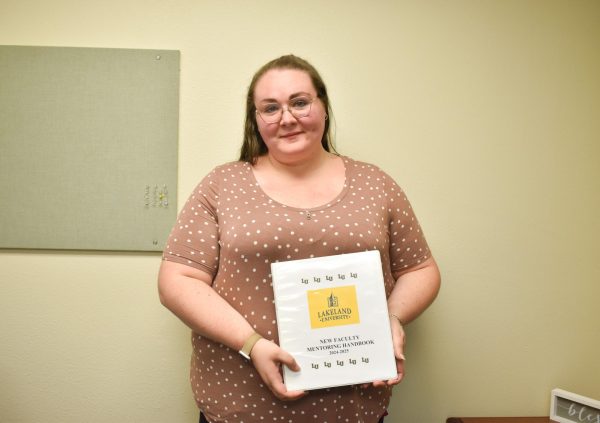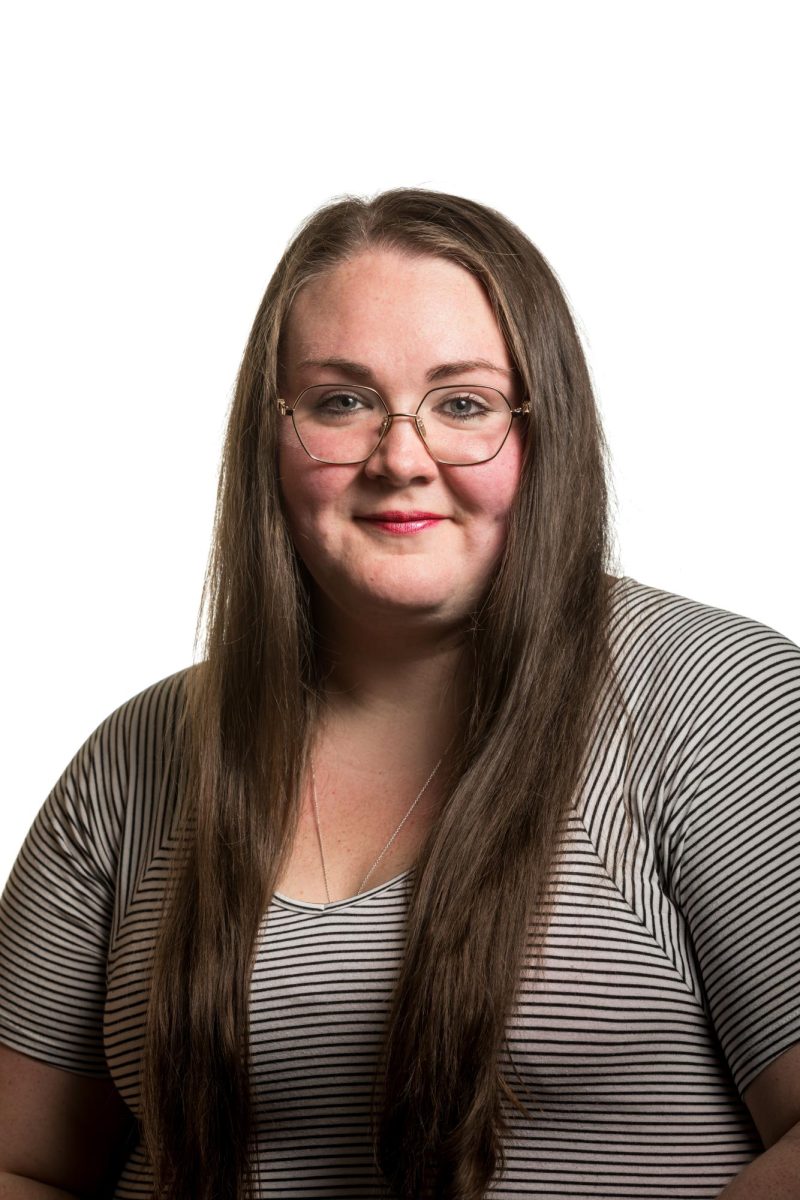This fall, Sara Bengsch, Ph.D., began a full-time position as visiting assistant professor of psychology at Lakeland. After Bengsch taught as an adjunct professor at Lakeland during the Spring 2024 semester, the community solidified her choice to accept the full-time position.
Prior to Lakeland, Bengsch served as an adjunct professor at South College, Grand Canyon University and Carrol University, among others. She was also a visiting professor at Chamberlain University. Bengsch earned a doctoral degree in psychology with a focus on teaching at Walden University, a Bachelor of Science in psychology at Colorado Christian University and a Bachelor of Arts in counseling psychology at Ashford University.
For Bengsch, creating positive social change in the community is a domino effect. And who was the domino before her — the person who inspired her to create a cascade of change?
When asked this question, Bengsch replied without hesitation: “my mom.” After teaching K-12 for over 30 years, her mom transitioned to the role of adjunct professor during her retirement. Bengsch, too, loved education, but realized she didn’t want to work with children. Inspired by her mom, she worked her way towards a career as a college professor.
She said her mom is “the type of teacher who really inspires whoever she’s teaching to want to do things. You think of those amazing teachers people have – that’s her in a nutshell.”
Bengsch hopes to follow in her mom’s footsteps. “That’s how I model myself,” she said, “that’s how I try to interact with all of my students, to try to inspire even a fraction of the amount of students she’s inspired over the years. I would love to make just a tiny difference in the lives of my students, and that’s because of her.”
Now, in her own classes — General Psychology, Social Psychology, Statistics for Social Sciences and Personality Theories — Bengsch strives for a student-focused classroom.
“My teaching philosophy is 100% about my students,” she said. “Obviously, I have my own way of doing things, but I’m not afraid to pivot. I like to use the word pivot, you know, be flexible, in the sense of, if what I’m doing isn’t working, I’m happy to switch it up halfway through… I need to focus on what my students need, otherwise, what am I doing if my students aren’t learning the way they need to learn?”
She values her students’ curiosity and the different perspectives that show up in class discussions. That same curiosity led her to pursue psychology.

“Ever since I was a kid, I have always been fascinated by why people do the kinds of things that they do. I am huge into the clinical side of psychology.” She also loves forensic psychology. “Criminal Minds” is her favorite show, and she enjoys other psychology-based series that involve analysis. “I’m all about analyzing things; I want to understand why someone’s doing what they do.”
Bengsch knew she wanted psychology to be part of her career, but she didn’t know how. “When you look at the field of psychology,” she said, “it’s vast; it’s humongous, and when you get a psychology degree, especially on the undergraduate side, there’s five billion different avenues you can take with it.” Her role as a psychology professor is the perfect fit. “Education and psychology are two of my greatest passions. So being able to combine these two together has been fantastic.”
She hopes that her experience will help her students find their career paths. “I share a lot of personal examples from my life in my class,” Bengsch said, “because I want everyone to realize, you know, you can try something; if it doesn’t work you can try something else. I have a marketing degree that I don’t use. I was a therapist, I’m not that anymore… you can always pivot; you can always choose something else.”
Before becoming an educator, Bengsch earned an associate degree in marketing. She also served as a therapist intern before pursuing her doctorate. She realized neither counseling nor marketing would lead to a job she loved.
“It’s going to be a really long career if you hate your job,” Bengsch said. “And I know that’s how it would have been for me if I would have pursued marketing — even if I would have stayed in therapy, I would have been a really burnt-out therapist. I don’t want that for my life. And I hope my students realize they can make a change when they need to make a change. And it’s ok; it’s ok to do what you actually want to do.”
By supporting, encouraging and educating her students, Bengsch demonstrates her passion for creating a positive social change that ripples through the community.
“I want to be able to make a difference in the lives of people,” Bengsch said. She hopes the domino effect that started with her mom will continue with her students, who have the power to impact others in their lives and future careers. “I want to be able to influence them so they can make a difference in someone else’s life.”


